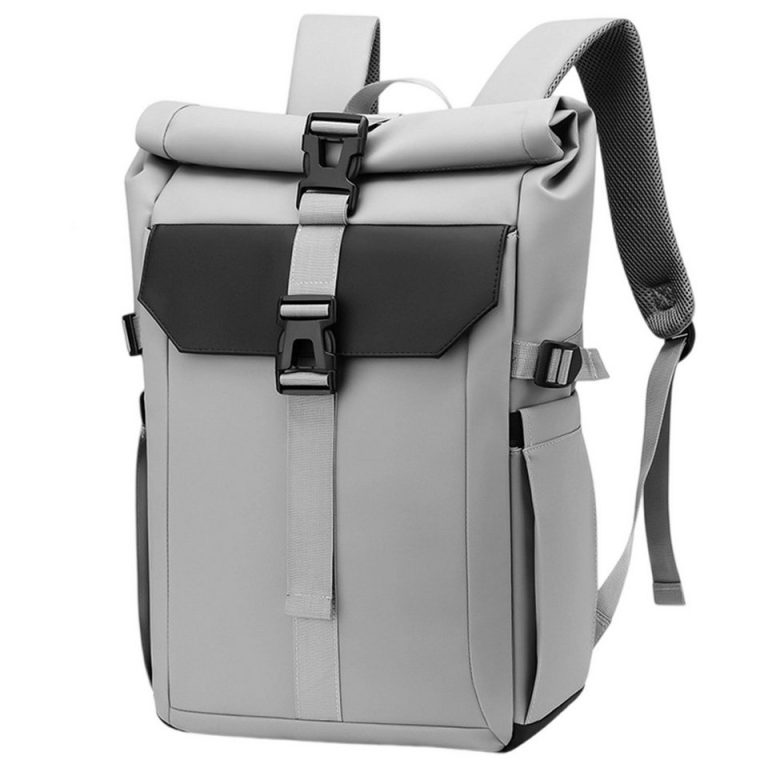
The Growing Market for Wholesale CBD Edibles
The rising interest in cannabidiol (CBD) products has carved out a lucrative segment within the health and wellness industry, particularly in the realm of wholesale cbd edibles. These products, ranging from gummies to infused beverages, have garnered attention not only for their potential therapeutic benefits but also for their appeal among consumers seeking innovative and enjoyable ways to incorporate CBD into their daily routines. This surge in popularity is reshaping market dynamics and consumer expectations, thus creating opportunities and challenges for businesses aiming to enter or expand within this space.
Understanding the Demand Trends
The demand for wholesale CBD edibles has escalated as consumers become increasingly aware of the potential health benefits of CBD. Research indicates that CBD may provide relief from anxiety, chronic pain, and sleep issues, among other conditions. This growing awareness has sparked interest across various demographics, particularly within young adults seeking alternative wellness solutions. Moreover, as more individuals turn to plant-based and natural remedies, CBD edibles align perfectly with this movement.
Additionally, online shopping trends have exploded in recent years, particularly in the aftermath of recent global events that required many brick-and-mortar establishments to adapt or close. The convenience of ordering CBD edibles directly offers consumers a seamless experience, enhancing their likelihood of trying new products. Furthermore, social media platforms have played a significant role in shaping consumer perceptions, making it essential for brands to engage in digital storytelling that connects their products with consumers’ lifestyles and values.
Market Size and Projections
The CBD edibles market has witnessed exponential growth and is projected to continue on this trajectory. Various studies suggest that the market size will achieve significant milestones within the next few years, largely driven by increased consumer acceptance and favorable regulatory developments. With more states in the U.S. legalizing hemp-derived products, the influx of new players into the market is expected to enhance competition, driving innovation and potentially lowering prices for consumers.
Market segmentation shows that CBD gummies are particularly popular due to their ease of consumption and flavor variety, making them appealing to a broader audience. Other edible forms, such as beverages and baked goods, are also seeing a rise in demand, indicating a diverse interest in how CBD can be infused into traditional food formats. Positioning products to meet these diverse preferences will be crucial for companies looking to capture a meaningful share of the growing market.
Consumer Preferences in Edibles
Understanding consumer preferences is vital in the realm of wholesale CBD edibles. A notable trend is the inclination towards natural flavors and organic ingredients, as consumers increasingly prioritize transparency regarding product sourcing and manufacturing processes. This demand drives brands to focus on high-quality, all-natural products that resonate with health-conscious consumers.
Moreover, dosaging has become a critical consideration for many consumers. Edibles that clearly display their CBD content and allow for flexible dosing options tend to gain in popularity. Educational initiatives that inform consumers about effective dosages and consumption methods can also play a significant role in shaping their purchasing decisions. Businesses must not only present appealing products but also provide the necessary information that empowers consumers to make informed choices.
Types of Wholesale CBD Edibles Available
Exploring Gummies and Sweets
CBD gummies are one of the most popular forms of edible products available on the market today. Their playful appearance, variety of flavors, and convenient dosing make them an attractive option for both new and seasoned CBD users. Gummies typically come in several shapes and sizes, often designed to appeal to different age groups, including children and adults alike.
From a business perspective, sourcing high-quality ingredients and ensuring consistency in production is key to establishing a reputable brand. Companies can differentiate themselves by offering unique flavors or combining CBD with other functional ingredients such as vitamins or additional botanicals, thus enhancing the perceived value of their products.
Benefits of Infused Beverages
CBD-infused beverages have started to infiltrate the mainstream market, providing a refreshing alternative for consumers who may not favor traditional edibles. Options such as sparkling waters, teas, and even coffee offer an exciting way to consume CBD in a socially acceptable format.
The benefits of infused beverages extend beyond convenience—with manufacturers often touting specific benefits of the accompanying flavors and natural ingredients. When marketing these products, it’s crucial to emphasize both the CBD content and any unique attributes, such as organic certification or health benefits derived from the other ingredients. Adopting creative packaging and branding strategies that draw attention on store shelves will also be vital for success in this competitive category.
Comparing Chocolates and Baked Goods
Chocolates and baked goods represent another exciting segment of the wholesale CBD edibles market. These products appeal to consumers seeking indulgence paired with wellness. Chocolates, particularly dark chocolate, have long been recognized for their health benefits, and adding CBD amplifies this appeal. The richness of chocolate can mask the earthy flavor of CBD, making it a favorable choice for consumers apprehensive about trying CBD for the first time.
Baked goods like brownies, cookies, and pastries allow for a diverse range of product offerings. Innovative businesses could consider seasonal flavors or culinary trends to captivate consumers’ attention. In addition, promoting these products as guilt-free treats with potential health benefits could resonate well with target demographic groups, fostering brand loyalty.
Regulations Surrounding Wholesale CBD Edibles
Understanding Legal Compliance
The regulatory landscape for wholesale CBD edibles is continually evolving. Establishing a responsible business framework begins with a comprehensive understanding of federal and state regulations surrounding the production and sale of CBD products. Compliance ensures public safety as well as consumer trust, making it a non-negotiable aspect of business strategy.
Many states have established specific regulations regarding the allowable levels of THC in CBD edibles, labeling requirements, and age restrictions on sales. Failing to adhere to these regulations can result in severe penalties, including the potential shutdown of operations. Regularly consulting with legal experts in the field can help brands navigate this complex landscape and ensure compliance as regulations continue to evolve.
Labeling and Packaging Requirements
Proper labeling and packaging are essential for wholesale CBD edibles, not only for meeting regulatory standards but also for building consumer confidence in the products. Labels must accurately reflect the contents, including the amount of CBD per serving, ingredients, and any potential allergens.
Additionally, brands should focus on providing educational content directly on their labels, such as usage instructions and the benefits associated with the product. Eye-catching packaging can play a crucial role in attracting consumers, but it should also comply with regulations regarding health claims and safety information. This balance between marketing appeal and compliance can greatly influence purchasing decisions.
Quality Control Standards
Implementing stringent quality control measures is pivotal in ensuring that wholesale CBD edibles meet consumer expectations and regulatory requirements. Companies should prioritize obtaining third-party lab testing to confirm the absence of harmful contaminants and to validate the potency of their products. Transparent reporting of lab results can further bolster consumer trust and differentiate a brand in a crowded market.
It is also beneficial to adopt Good Manufacturing Practices (GMP) to ensure consistency and quality across production batches. By establishing a reputation for reliability, businesses can foster loyalty among consumers, thereby increasing long-term profitability. Additionally, maintaining certification from recognized bodies can act as a quality assurance mechanism that resonates with health-conscious consumers seeking transparency.
Marketing Strategies for Wholesale CBD Edibles
Creating Engaging Brand Stories
An effective marketing strategy for wholesale CBD edibles hinges on establishing an emotional connection with the target audience. Brands should craft engaging stories that reflect their mission, values, and commitment to quality. This connection can inspire trust and loyalty among consumers who place increased importance on the companies behind their products.
Additionally, leveraging storytelling across multiple platforms such as websites, social media, and email marketing can reinforce brand recognition. Highlighting customer testimonials or case studies of individuals who have benefitted from the products creates authenticity and relatability, elements that are crucial in connecting with customers in the wellness sector.
Utilizing Social Media Effectively
Social media serves as an indispensable tool in the marketing arsenal of brands selling wholesale CBD edibles. Platforms like Instagram, Facebook, and TikTok allow brands to reach diverse audiences and engage with consumers in real-time. Creative content strategies, including educational posts, product demonstrations, and behind-the-scenes glimpses into production processes, can enhance brand visibility and encourage consumer interaction.
However, navigating advertising regulations on social media can present challenges for CBD-related businesses. It is vital to familiarize yourself with the rules governing CBD advertising on these platforms, ensuring compliance while still producing compelling content that resonates with your audience.
Leveraging E-commerce Platforms
As online shopping continues to dominate consumer behavior, leveraging e-commerce platforms offers businesses a powerful avenue for growth. Establishing a robust online presence through a well-designed website can facilitate direct-to-consumer sales while also optimizing opportunities for engaging customers.
In addition to having an informative and user-friendly website, collaborating with established e-commerce platforms that already cater to health and wellness products can help expand reach. To maximize the effectiveness of online sales, consider implementing search engine optimization (SEO) strategies, targeted online advertising, and personalized email marketing campaigns to attract and retain customers.
Health Benefits and Consumer Education
Promoting Responsible Consumption
Educating consumers about responsible consumption is a vital component of expanding the wholesale CBD edibles market. Providing clear guidelines on dosing, effects, and potential interactions with other substances ensures consumers are informed before integrating CBD edibles into their routines.
Brands can create educational content such as blog posts, FAQs, and informational videos that address common questions and concerns surrounding CBD use. This information not only empowers consumers but also positions brands as knowledgeable leaders in the industry, enhancing customer trust.
Highlighting the Wellness Benefits
Highlighting the wellness benefits of wholesale CBD edibles is paramount to attracting health-conscious consumers. Research suggests that CBD may alleviate anxiety, improve sleep quality, and support overall wellness. By communicating these benefits effectively, businesses can appeal to consumers interested in enhancing their quality of life through natural remedies.
Moreover, collaborating with health professionals, nutritionists, or wellness influencers can reinforce credibility while amplifying outreach efforts. Such partnerships lend authority to claims and provide consumers with peace of mind, knowing they’re making informed choices regarding edible choices.
Addressing Myths and Misconceptions
As the CBD industry continues to grow, misinformation and misconceptions about CBD and its effects often arise. Brands that take the initiative to address these myths through comprehensive and transparent education can differentiate themselves from competitors in a meaningful way.
Marketing campaigns that debunk prevalent myths, such as the notion that CBD products create a “high” or are illicit drugs, can help foster positive perceptions of CBD edibles. Building a foundation of trust through transparent communication can serve to alleviate consumer fears while encouraging them to explore the plethora of benefits that CBD edibles may offer.






